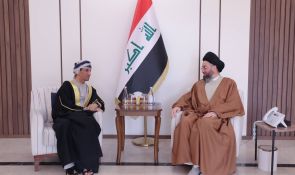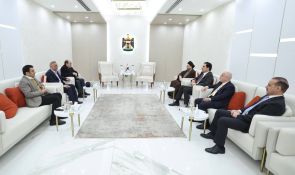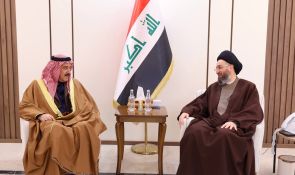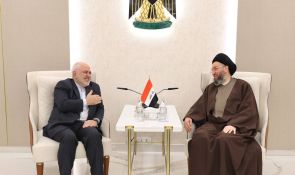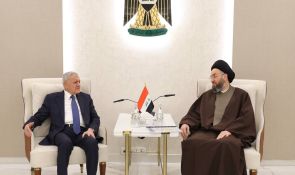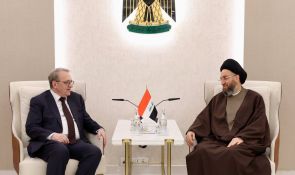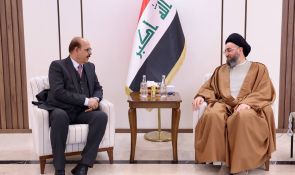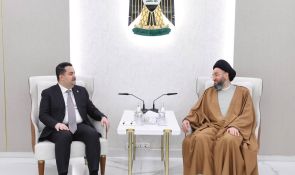Sayyid Al-Hakeem: “the parliamentary system has negatives and positives, it cannot be evaluated from a unilateral point of view”
In the guest place of Sheikh Aboud Waheed Al-Essawi, head of the Al-Essa Al-Tai tribe, on 2/6/2022, Sayyid Ammar Al-Hakeem, head of Al-Hikma National Movement, had a stand with the sheiks and dignitaries of the Kufa district and discussed with them the political and social affairs and the agricultural reality, indicating, after listening to the valuable interventions of the audience, the nature of the parliamentary system with its positives And its drawbacks, calling for a balanced view of this system that notes both cases, as the parliamentary system is characterized by a plurality of opinions and visions and impedes the maturity of decisions. It also forms a guarantee to not take Iraq by the principle of unilateral opinion and the one and only leader. At the same time, it ensures the presence and representation of the components in the political scene.
In his speech, His Eminence said that the national majority is one of the guarantees of the political system, as it provides an alternative and holds the parties responsible for managing the state, indicating the importance of the broad national majority, which opens the door for all those wishing to participate to empower them in the government while preserving the representation of the largest social component, so that the social majority cannot transform to a minority in a majority government.
His Eminence renewed his call to ensure social representation within the larger constituency, calling to give the opposition its right to obtain information and empowering them with the joints that support their work. The success of the majority depends on the opposition’s success in performing its duty and its role in monitoring and accessing information while stressing the importance of supporting farmers by providing them with modern agricultural needs and raising prices, leading to self-sufficiency and ensuring food security, in addition to cultivating the land and improving the environment.


